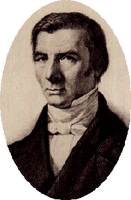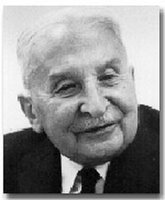
"I note President Reagan, from one of your books, that in 1987 you heard one presidential candidate say that what this country needed was a president for the '90s. You were set to run again, because you thought he said a president in his 90s and you were (inaudible)."
"Sir, you strode into our midst at a time when America needed you most. This great country had been through a period of national malaise bereft of any sense of moral direction. Through it all, throughout eight of the fastest moving years in memory, you were unflappable and unyielding."
"You brushed off the jibes and jabs of your jealous critics. With that Irish twinkle and that easy homespun style, which never changed, you brought a new assurance to America. You were not only America's President -- important as that is -- you were a great leader. In a time of average men, you stood taller than anyone else."
"With a toughness unseen for a long time, you stood face-to-face with the evil empire. And, with an unexpected diplomacy which confused your foes -- and even some of your friends -- you reached out to that empire, perhaps no longer evil, but still formidable. You met its leaders on their turf, but on your terms."
"In a time of politicians, you proved yourself a statesman. And that leadership, that faith in freedom and enterprise brought about a renewal of this great country. America was back and the free world became a safer place."
"It was not only that you were the Great Communicator -- and you were the greatest -- but that you had a message to communicate."
"The message that had inspired the founding fathers, the message that has guided this nation from its birth -- the essence of good government is to blend the wisdom of the ages with the circumstances of contemporary times -- that is what you did. Not since Lincoln, or Winston Churchill in Britain, has there been a President who has so understood the power of words to uplift and to inspire."
"You reached beyond partisanship to principles, beyond our own selves to our very souls. You reached for and touched, as Lincoln had said so long before you, the better angels of our nature. Leadership is more than budgets and balance sheets. More than the policy of public measures, it is a matter of moral purpose. And that moral realm is reached by that insight and rhetoric of which only the truly great are capable."
"In 1969, as Governor of California, you spoke at Eisenhower College. It was a terrible time of student rebellion, of violence against property, violence against fellow students and violence against others on the campus. "How and when did all this begin?", you asked. "It began," you said, "the first time someone old enough to know better declared it was no crime to break the law in the name of social protest. It began with those, who in the name of change or progress, decided they could strap all the time- tested wisdom man has accumulated in his climb from the swamp to the stars." And I particularly like the next bit. "
"And my second choice arises because we are coming to the 50th anniversary of the D-Day Normandy landings -- the Longest Day, the day we dare not lose the battle. Let us recall what you said on the 40th anniversary on those beaches, for no one else could say it better.
You said, "Those men of Normandy had faith that what they were doing was right, faith that they fought for all humanity, faith that a just God would grant them mercy on this beachhead or on the next. The Americans who fought here that morning," you continued, "knew word of the invasion was spreading through the darkness back home. They felt in their hearts that in Georgia they were filling the churches at 4:00 a.m. in the morning. In Kansas they were kneeling on their porches and praying, and in Philadelphia they were ringing the Liberty Bell. And they knew that God was an ally in this great cause. That night General Ridgeway was listening in the darkness for the promise God made to Joshua; 'I will not fail thee, nor forsake thee'." And you said "Let us continue to stand for the ideals for which they lived and died. We will always remember. We will always be proud."
"Ron, I think that was your greatest speech. "
"Like Winston Churchill, you made words fight like soldiers and lifted the spirit of the nation
And my third one, also a favorite, which was seen the world over, was the terrible Challenger space shuttle disaster. You knew immediately, with that unfailing instinct, that the tragedy needed a national voice to share the mourning, to comfort and yet to say, "The quest must go on." You were on television within hours. And I remember so well you spoke especially to the school children who had been watching. You said "I know it is hard to understand, but sometimes painful things like this happen. It's all part of the process of exploration and discovery. The future doesn't belong to the faint-hearted. It belongs to the brave. The Challenger crew is pulling us into the future. And we'll continue to follow them." And, of course, America did, as we saw today. "
"You always had the right words, and we honor you for it. "
"There were so many other speeches, some prophetic, some humorous, but all with a vision, all which inspired. We could identify with each and every one. More than anyone else, you knew peoples' desire to be attached to some cause greater than themselves. "
"So, instead of inundating the American people with the torrent of projections and percentages, you spoke of the voluntary spirit of community and charity. "
"When others spoke of the fear of war, you spoke of the need for warriors and peace through strength. When others bewailed the failure of big government to provide for the collective good, you spoke of self-reliance, of personal responsibility, of individual pride and integrity. When others demanded compromise -- when other demanded compromise, you, Ronald Reagan, preached conviction."









 Viewed from Washington, it's hard to believe the Ireland depicted in the film The Commitments even existed 15 years ago. When the 20-somethings depicted in that movie discussed career opportunities, the inevitable question was: "When are you going?’' As in - to the US for a job. Not any more.
Viewed from Washington, it's hard to believe the Ireland depicted in the film The Commitments even existed 15 years ago. When the 20-somethings depicted in that movie discussed career opportunities, the inevitable question was: "When are you going?’' As in - to the US for a job. Not any more.










